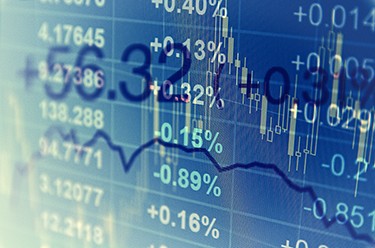What is Unauthorized Trading?
Unauthorized trading involve any trades that an investment advisor or brokerage firm makes for a customer without getting their express permission.
 Before conducting any transaction on your investment account, your broker must have the proper authorization. If they fail to do so, they are violating industry rules, and can be held legally liable for any investment losses. There are two primary ways that brokers can get authorization to make trades:
Before conducting any transaction on your investment account, your broker must have the proper authorization. If they fail to do so, they are violating industry rules, and can be held legally liable for any investment losses. There are two primary ways that brokers can get authorization to make trades:
- Setting up a discretionary account; or
- Seeking express permission for the individual trade in question.
A discretionary account allows your broker to make trades without consulting you before each individual transaction. Instead, with this type of account, you will set up certain general parameters for your financial advisor to follow.
On the other hand, if you have never given general trading authority to your broker, then you have a ‘ nondiscretionary account’. With a non-discretionary account, your broker cannot make any trades without first seeking your approval. If they do so, then they have engaged in unauthorized trading.
Unfortunately, unauthorized trading remains a major problem in the securities industry. According to data collected and compiled by the Financial Industry Regulatory Authority (FINRA), there were more than 350 arbitration proceedings related to unauthorized trading allegations that took place in the year 2016 alone. This makes unauthorized trading one of the top ten most frequently disputed securities industry violations.
Unauthorized Trading is a Violation of FINRA Rules
Under FINRA Rule 2510(b), no registered broker or brokerage firm may use discretionary trading power with regards to their client’s account unless that specific client has given them express written authorization to do so. There is simply no ambiguity on this issue. It does not matter if the broker truly believes that they are acting in their client’s best interests; with a non-discretionary account, brokers may never conduct trades without proper authorization.
Why Brokers Break the Rules
Sadly, despite a broker’s clear duty to always act in the best interests of their clients, far too may fail to do so. Unauthorized trading is often a textbook example of brokers putting their own interests above that of their clients. Unauthorized trading can occur for many different reasons. While theoretically, one of the reasons might be that a broker firmly believes that the client would be missing out on a once-in-a-lifetime trade if they do not act now, that is rarely the actual motivation behind an unauthorized transaction. Instead, it is quite the contrary. In the vast majority of cases, registered financial advisors engage in this unlawful practice because:
- They are trying to increase their own commissions or fees by churning the account;
- They are trying to cover other losses; or
- They are trying to advance their own financial interests in some other manner.
Regardless of the underlying reasoning, investment advisors must be held accountable for their misconduct. If you have been a victim of unauthorized trading, and it led to considerable losses, you need to take immediate legal action.
Do Not Get Bullied Into Accepting the Losses from Unauthorized Trading
As was mentioned, the industry rules and regulations on unauthorized trading are clear. If you have a non-discretionary brokerage account, your investment advisor cannot, under any circumstances, take it upon themselves to conduct a transaction without your express consent. There is no implied consent on this issue. Yet, despite how clear this rule is, far too many brokers and brokerage firms still violate this rule. Worse yet, if something goes wrong, many then try to bully the victims into accepting the consequences.
For example, you may review your monthly statements, only to discover that you lost money because of unauthorized trades. When you contact your broker, you may be told that you already consented to the transaction because you waited too long to register a complaint. This is simply false. If you did not grant express authorization, you did not waive your rights. It does not matter if you took a few months to notice the issue and take action.
The bottom line: If you sustained losses due to unauthorized trades, you are entitled to financial compensation for the full extent of your losses. Your broker had no right to make that transaction, and, as such, they must bear the liability for the trade that went wrong.
Were You a Victim of Unauthorized Trading?
We can help. At the Sonn Law Group, our highly experienced investment fraud attorneys have extensive experience handling unauthorized trading claims. If your broker conducted unauthorized trades on your account, please call our team today at 844-689-5754 to schedule a free review of your claim. From our primary office in Aventura, FL, we represent investors throughout the United States.
CONTACT US FOR A FREE CONSULTATION
Se Habla Español
Contact our office today to discuss your case. You can reach us by phone at 844-689-5754 or via e-mail. To send us an e-mail, simply complete and submit the online form below.

